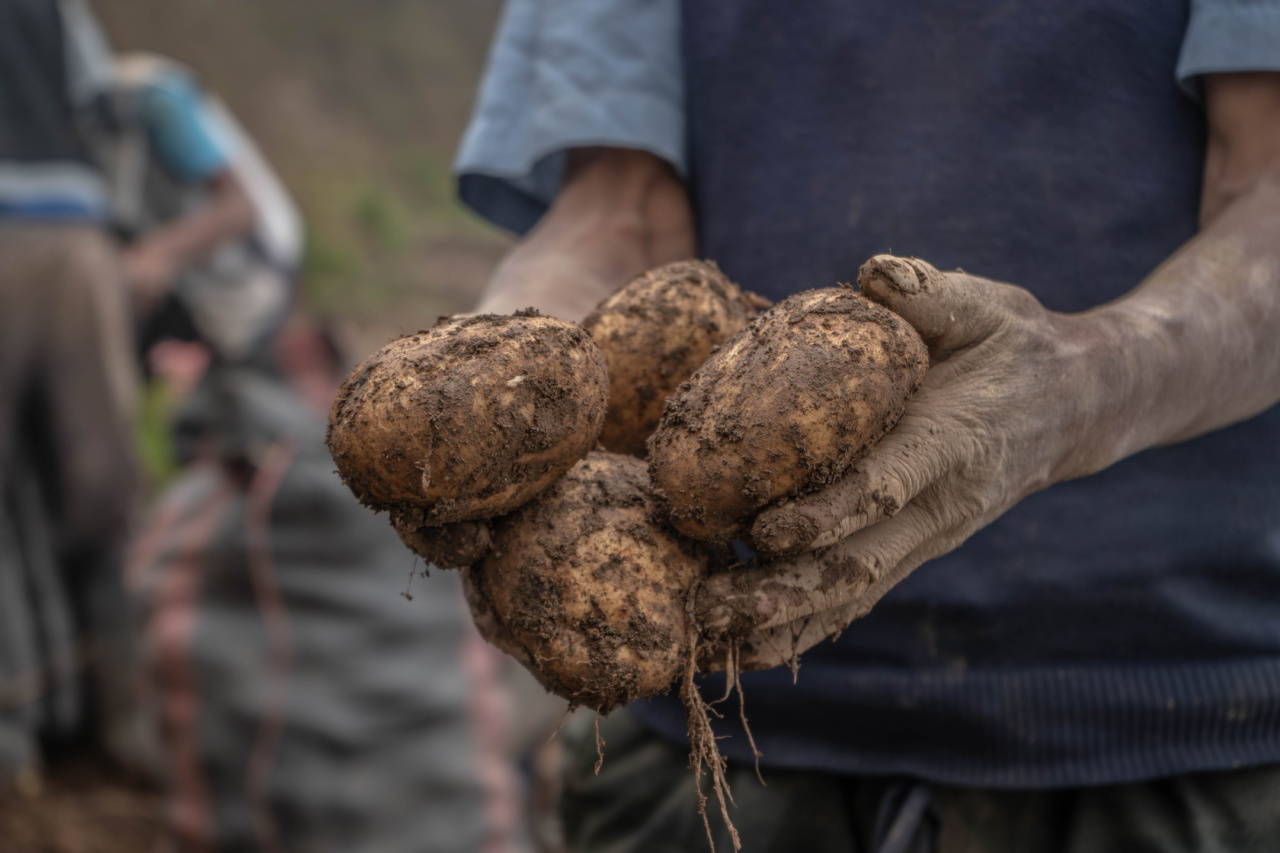Potatoes are a staple in many households worldwide. They are delicious, versatile and nutritious.
But did you know that there are some dirty secrets about potatoes that you need to know? In this article, we’ll be exploring some of the less savory aspects of potato production, from the chemicals used in farming to the dangerous compounds found in potato chips.
1. Chemicals Used in Potato Farming
It’s not widely known that conventional potato farming relies heavily on chemical pesticides and herbicides. According to the Environmental Working Group, potatoes are among the top twelve most contaminated fruits and vegetables.
As a result, farmers use a variety of chemicals to protect their crops from pests and disease.
One of the most commonly used pesticides in potato farming is chlorpropham, which is a carcinogen and a known endocrine disruptor. The herbicide paraquat is also widely used, but it is highly toxic and has been linked to Parkinson’s disease.
These chemicals put farmers, farmworkers, and consumers at risk.
2. Impact on the Environment
Potato farming can have a significant impact on the environment. Chemical pesticides and herbicides are not only harmful to human health, but they can also have devastating effects on the ecosystem.
They contribute to soil degradation and water pollution, which can have long-lasting consequences for plants, animals and humans alike.
The use of heavy machinery in potato production also contributes to soil erosion and compaction, which further degrade the soil quality.
In addition, potato farming requires large amounts of irrigation, which can cause water depletion and contamination.
3. Potatoes and Acrylamide
Acrylamide is a carcinogenic compound that forms when certain foods are heated to high temperatures, such as in frying or baking. Potatoes are one of the most significant sources of acrylamide in the diet.
Potato chips, in particular, are a significant contributor to acrylamide exposure.
Studies have shown that long-term exposure to acrylamide can increase the risk of certain types of cancer. In addition, acute exposure to high levels of acrylamide can cause damage to the nervous system.
4. GMO Potatoes
Genetically modified potatoes are becoming more prevalent in the food industry. These potatoes have been engineered to resist pests and disease, and to have a longer shelf life.
However, there are concerns about the safety of GMO potatoes, both in terms of their impact on human health and on the environment.
Some studies suggest that genetically modified crops pose a risk to human health, as they may contain allergens and other toxic substances.
In addition, GMO crops have the potential to crossbreed with wild plants, causing unintended consequences for the ecosystem.
5. Organic Potatoes
While commercial potato farming raises many concerns, organic farming offers an alternative that is healthier and more sustainable. Organic potatoes are grown without the use of synthetic pesticides, herbicides, or fertilizers.
As a result, they are much less likely to contain harmful chemicals or contaminants.
In addition, organic farming practices are designed to protect the environment. Organic farmers work to promote soil health and conserve water resources. They also prioritize biodiversity and work to minimize their impact on the ecosystem.
6. Proper Storage and Preparation
While there are many concerns about potato production, there are steps that consumers can take to minimize their exposure to harmful compounds. Proper storage and preparation can help ensure that potatoes are as safe and nutritious as possible.
When storing potatoes, it’s important to keep them in a cool, dark place. Exposure to light can cause potatoes to develop harmful compounds such as solanine, which can cause nausea, vomiting, and diarrhea if consumed in large quantities.
Cooking potatoes at lower temperatures can also help reduce the formation of acrylamide. Boiling or baking potatoes can be a healthier alternative to frying.
In addition, choosing organic potatoes can help minimize exposure to harmful chemicals and contaminants.
7. Conclusion
Potatoes are a popular and nutritious food, but the methods used to grow, harvest, and process them can have a significant impact on human health and the environment.
By understanding the potential risks and taking steps to minimize exposure, consumers can make informed choices about the potatoes they consume.
Organic farming practices offer a healthier and more sustainable alternative to conventional potato production. Proper storage and preparation can also help reduce exposure to harmful compounds.
By making these choices, consumers can ensure that they are getting the best possible nutrition from their potatoes.































